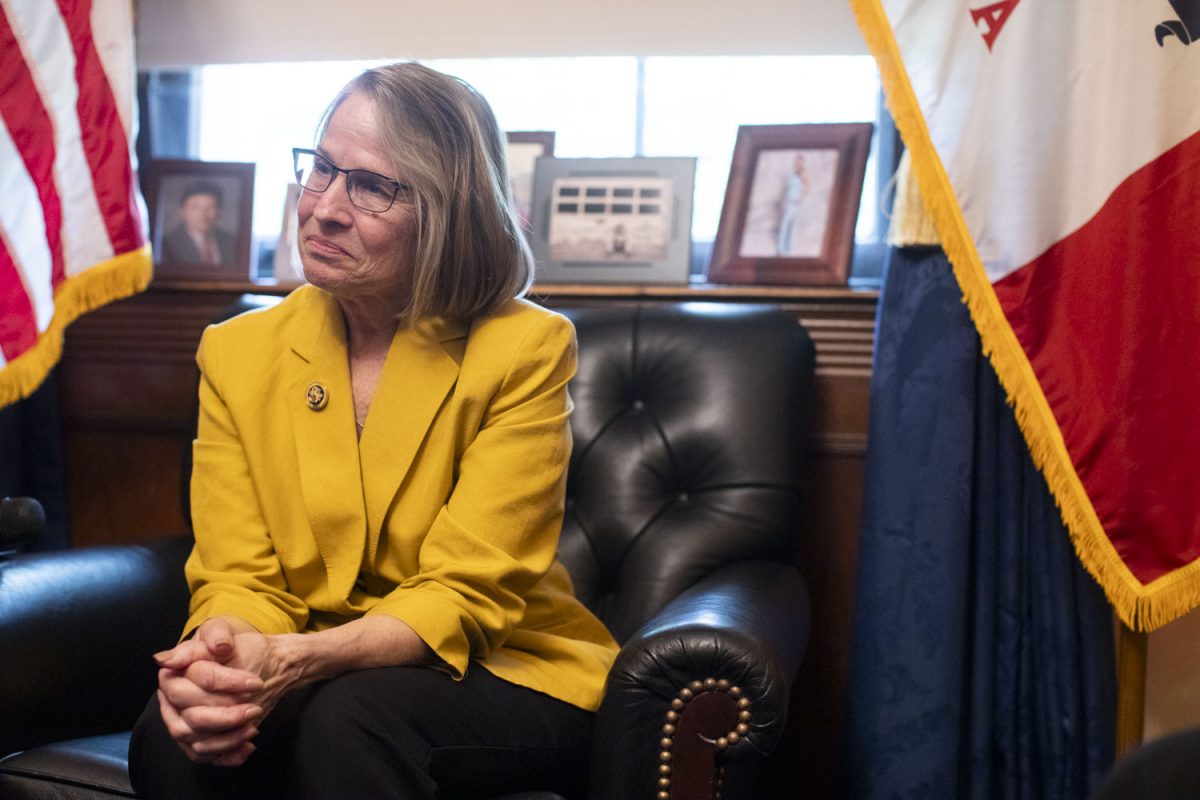WASHINGTON — Founder and Former Chair of the House Conservative Climate Caucus, U.S. Rep. John Curtis, R-Utah, passed the baton this month to U.S. Rep. Mariannette Miller-Meeks, R-Iowa.
Miller-Meeks officially took the position on April 1, becoming the second lawmaker to chair the 85-member organization. She previously served as vice chair since January 2023.
Learn more here:
Curtis founded the Conservative Climate Caucus in 2021 and orchestrated the hand-off of power as he plans to leave the House at the end of the year to compete in the Utah GOP primary to take on retiring U.S. Sen. Mitt Romney’s seat.
In an interview with The Daily Iowan on Tuesday, Miller-Meeks recalled going to a conservative climate meeting in Utah with Curtis in 2021 — a time when there were roughly twenty members of the caucus.
Miller-Meeks pointed to Iowa’s history as a leader in renewable energy and fuels for her inspiration in leading the caucus to pursue more renewable energies and exporting electricity made with those renewable energies.
“When you’re in southeast Iowa, and when you’re in Iowa, and you’re in an agricultural community, number one, our farmers are our primary conservators,” Miller-Meeks said. “They’re stewards of the land.”
Miller-Meeks said the main reason she got involved with the caucus is because Iowa has a “great story to tell.”
Iowa’s most recent energy profile by the U.S. Energy Information Administration reported that 63 percent of the state’s total electricity net generation came from wind in 2022 — the largest wind power share of any state.
“We are a net exporter of energy,” Miller-Meeks said. “We’re not only an agriculture state, we are an energy state.”
Additionally, Miller-Meeks said the state provides more renewables than most people consider, listing Iowa’s vast sources of renewable energy: wind, solar, ethanol, biodiesel, biomass, and compressed renewable natural gas.
“We really are a state that I think is very forward-thinking and we have done it without mandates and without emission guidance,” Miller-Meeks said.
She stressed the importance of creating a cleaner, healthier planet for future generations, while also being able to compete economically around the globe. Miller-Meeks said labor costs are not the solution, but rather affordable energy is.
“I look at this, how can we reduce emissions to have a cleaner, healthier planet, but also be able to grow an economy,” Miller-Meeks said. “And in growing our economy, all wealthy economies have invested back into cleaning their environment. So I think you can do both of those things. They’re not mutually exclusive.”
According to the 2023 Statistical Review of World Energy, the U.S. has experienced the largest decline in carbon dioxide equivalent emissions of any country over the past 15 years. Miller-Meeks said many people are unaware of this decline.
“It’s something that we should be talking about and you don’t hear that a lot,” Miller-Meeks said. “I think the United States has done a lot when it comes to reducing emissions, improving our climate, our environment. It’s a story that we should tell and be proud of.”
She pointed to the pollution emitted by China and the lack of repercussions for the country as problematic and difficult to compete with economically.
“[Natural gas] is something that we should want to export around the world because without any repercussions to China, we can help lower emissions globally by the clean energy that we produce in the United States,” Miller-Meeks said.



